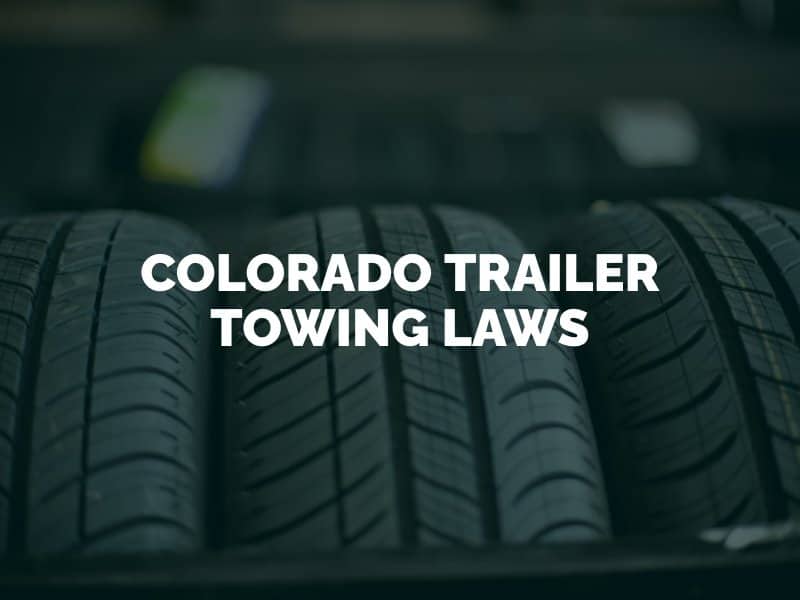When towing a trailer, it is the operator of the vehicle’s legal responsibility to ensure the safety of the equipment. Failure to do so, resulting in a car accident, could place liability with the negligent driver. Learn Colorado’s trailer towing laws to transport cargo, animals or vehicles safely, as well as to recognize when someone towing a trailer is financially responsible for a car accident in Denver.

All trailers must be properly registered and titled in the State of Colorado. Trailers being towed behind vehicles must contain license plates with up-to-date registrations. If a driver tows a trailer that is not titled or registered, he or she could receive a traffic ticket and will not be allowed to use the trailer until getting it registered.
Colorado Vehicles and Traffic Code Section 42-4-223 states that all motor vehicles other than motorcycles must have brakes that adequately stop and hold such vehicles. If a driver is operating a commercial trailer or semitrailer that weighs 3,000 pounds or more, the trailer must be equipped with brakes of its own to control the trailer and allow it to come to a stop.
When the brakes of a vehicle towing a trailer are applied, they must be designed and connected to automatically stop the trailer as well. The trailer must also be designed to automatically apply the brakes in the event of an accidental breakaway of the trailer from the vehicle.
Every trailer or semitrailer that weighs less than 3,000 pounds, a horse trailer that can hold two horses or less, or a trailer that does not meet the definition of a commercial vehicle and is owned by a farmer transporting agricultural products does not need to be equipped with brakes. If brakes are required, they must be well-maintained and in proper working order.
In Colorado, a trailer being towed cannot exceed 70 feet in total length, including the hitch and bumper. It also cannot exceed a width of 8.5 feet and a height of 14.5 feet. It is dangerous to tow a trailer that exceeds the legal dimensions allowed in Colorado. A trailer that is too tall, wide and/or long poses accident risks. It may make turns that are too wide, for example, or be too long for the vehicle towing it to adequately be able to control the trailer’s movements.
To ensure adequate visibility at night, a driver towing a trailer must obey Colorado’s lighting requirements. State law says that all trailers must be equipped with at least one light on the rear of the trailer. The taillamp must omit a red light that is visible from a distance of at least 500 feet from the rear. The light must be installed on the trailer at a height of no less than 20 inches and no more than 72 inches.
All drivers towing trailers in Colorado must use safety chains where the trailers connect to the vehicles. The safety chain must be strong enough to pull 100% of the weight being towed should the hitch fail to keep the trailer connected.
Any driver in Colorado who wishes to tow a trailer must obey these state laws, regulations and restrictions. Trailer towing laws are in place for safety reasons. Ignoring these rules can result in a car accident due to improper trailer towing. If you get into an accident due to an illegal or improperly connected trailer in Colorado, the operator of the vehicle could be liable.
Holding a driver liable for a trailer towing accident means making him or her pay for your medical bills, vehicle repairs and other economic damages. Discuss your case with a car accident lawyer in Denver if you’ve been injured in a trailer towing accident. You may be eligible for financial compensation.